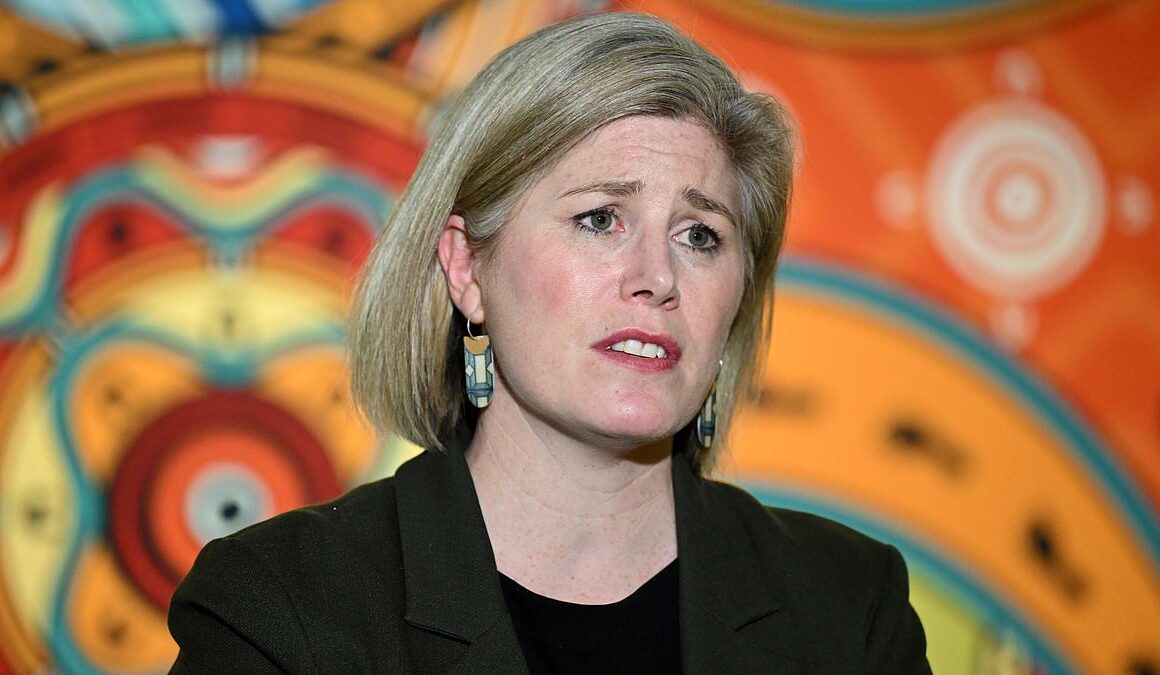Millions of Aussies have been warned to be vigilant for symptoms of a potentially deadly disease.
Victoria’s Department of Health is investigating a widespread outbreak of Legionnaires’ disease after a ‘significant increase’ of dozens of cases across Melbourne.
In the four days since last Friday, 33 confirmed cases of the disease have been recorded on top of another 10 suspected cases.
The cases have reported in the the city’s northern and western suburbs.
Most cases are adults aged over 40 and have severe community-acquired pneumonia that has required hospitalisation.
Victorian Chief Health Officer Dr Clare Looker issued a warning to Melburnians.
‘This is a nasty type of pneumonia … so people can become quite sick, quite quickly,’ she told ABC Radio Melbourne.
‘We are concerned. This is a significant increase on normal.

Victorian Chief Health Officer Dr Clare Looker (pictured) issued a warning to Melburnians about the outbreak of Legionnaires’ disease

Symptoms of Legionnaires’ disease include fever, chills, cough, headache and muscle aches and pains. Pictured Legionella bacteria at Victorian Infectious Diseases Reference Laboratory
‘Most of our cases at the moment are in hospital, a number in ICU… so they’re critically unwell.’
Dr Looker added: ‘As soon as we have a better sense of particular locations of concern, we will be sharing that.’
Investigations are underway to identify the source of the outbreak through testing of local cooling towers and other potential sources.
‘People who live in, work in or have visited metropolitan Melbourne and surrounding areas, and develop symptoms of Legionnaires’ disease, should seek urgent medical care,’ a department statement read.
Dr Looker urged Melbourne residents to be vigilant for symptoms, including fever, chills, cough, headache and muscle aches and pains.
Other atypical symptoms may include nausea, vomiting, diarrhoea and confusion.
Symptoms can develop up to 10 days after exposure to the bacteria, which is found in potting mix and soils and often multiplies in bagged potting mix, mulch and other products.

Anyone who develops symptoms of Legionnaires’ disease is urged to seek urgent medical care (stock image)
Legionnaires’ disease is not contagious and can not be transmitted from person to person.
‘Typically, people will almost always get it by breathing in fine droplets of water that contain the bacteria,’ Dr Looker added.
She said inhalation of contaminated water particles via air conditioners can often cause the disease.
‘Most often we will see most of the big outbreaks are associated with cooling towers so big industrial air conditioners,’ she said.
The Department of Health warned the people most at risk of Legionnaires’ disease include those aged over 40, smokers, people with a chronic lung disease, have a weakened immune system, and have other underlying medical conditions such as chronic heart, liver or kidney disease, and diabetes.
The department revealed test results indicate that the outbreak is caused by serogroup 1, which can be detected through a legionella urinary antigen test.








